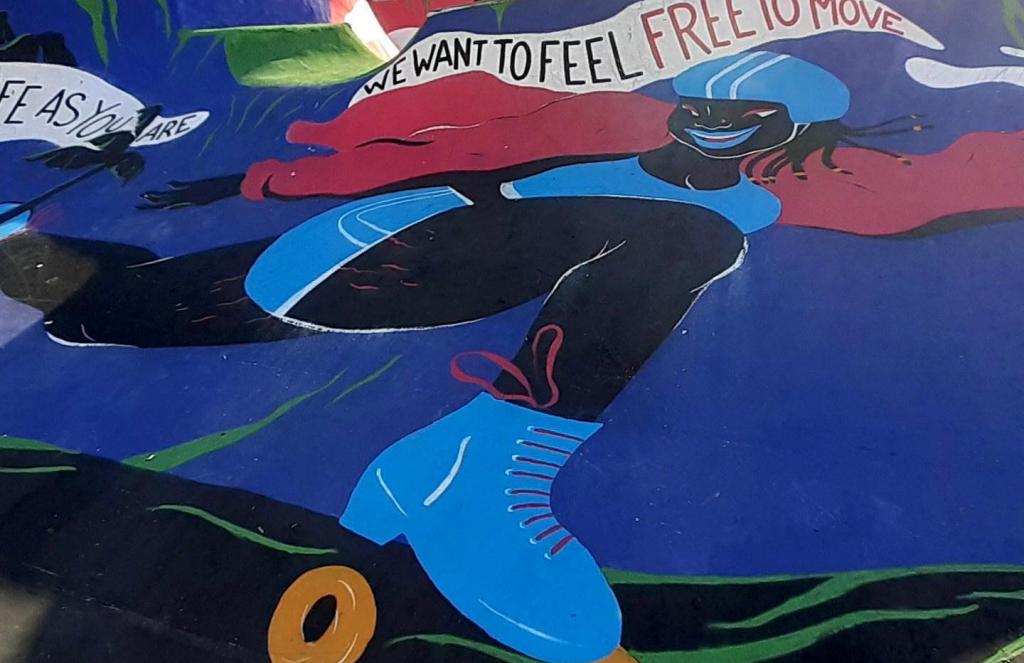Thessaloniki gets ready for its metro launch in November
The underground rapid transit lines have been under construction for almost two decades due to various project delays
 TheMayor.EU logo
TheMayor.EU logo 
9 out of 10 girls have experienced sexual harassments in the streets, according to research, Source: Zijkant
Women use public spaces much less often than men and the city wants to change that, making them more inclusive for everyone
Recently, the City of Brussels announced a new project that aims to make public spaces more female-friendly. The idea was partially born out of research by Plan International, an international humanitarian organisation.
According to the research, 9 out of 10 girls have experienced sexual harassment in the streets. Additionally, girls often meet indoors because they do not feel safe outside. Public spaces, especially sports facilities, attract a lot of men which can be quite intimidating.
The project was spearheaded by Brussels’ Alderman for Town Planning and Public Spaces Ans Persoons. It started in May when the city launched a tender for ideas and received 26 projects for public spaces. Out of those, they chose 6, with the redevelopment of a skate park near the Central Station in downtown Brussels as the pilot.
The project is called Girls make the City and it was developed by Wetopia, an urban design collective and Zijkant, a local activist group.
The skate park and the surrounding area at the Kapelle Church are also located near a secondary school. Furthermore, due to the city’s new mobility plan, redirecting cars away from the centre, there will be additional space available for public works.
According to a statement by Zijkant, the redevelopment project will focus on empowering local girls, who either use the skate park, go to school nearby or live in the neighbourhood, to redesign the space.
The team of locals will then go through a series of workshops led by urban planners, activists and architects, who will guide them through designing the new space. With that expert help, they will develop specific interventions and principles that should help them feel at home in that area.
After the workshop process is complete, the team will then develop a series of recommendations for the city, that could also be used by other cities in the future.
Ans Persoons went on social media to explain: “Urban planning and architecture are historically male affairs and so our cities were also designed from that perspective. Girls and women use the city differently and especially the public space much less than men.”

The underground rapid transit lines have been under construction for almost two decades due to various project delays

Now you can get your wine in Talence by paying directly in Bitcoin

That’s because the state has to spend money on updating the railway infrastructure rather than subsidizing the cost of the popular pass

Rethinking renewable energy sources for the urban landscape

The examples, compiled by Beyond Fossil Fuels, can inform and inspire communities and entrepreneurs that still feel trepidation at the prospect of energy transition

Now you can get your wine in Talence by paying directly in Bitcoin

The 10th European Conference on Sustainable Cities and Towns (ESCT) sets the stage for stronger cooperation between the EU, national and local level to fast track Europe's transition to climate neutrality.

At least, that’s the promise made by the mayor of Paris, Anne Hidalgo

The underground rapid transit lines have been under construction for almost two decades due to various project delays

At least, that’s the promise made by the mayor of Paris, Anne Hidalgo

Hostal de Pinós is located in the geographical centre of the autonomous region

Despite its church-y name, the district has long been known as the hangout spot for the artsy crowds

Urban dwellers across the EU are having a say in making their surroundings friendlier to people and the environment.

Forests in the EU can help green the European construction industry and bolster a continent-wide push for architectural improvements.

Apply by 10 November and do your part for the transformation of European public spaces

An interview with the Mayor of a Polish city that seeks to reinvent itself

An interview with the newly elected ICLEI President and Mayor of Malmö

A conversation with the Mayor of Lisbon about the spirit and dimensions of innovation present in the Portuguese capital














